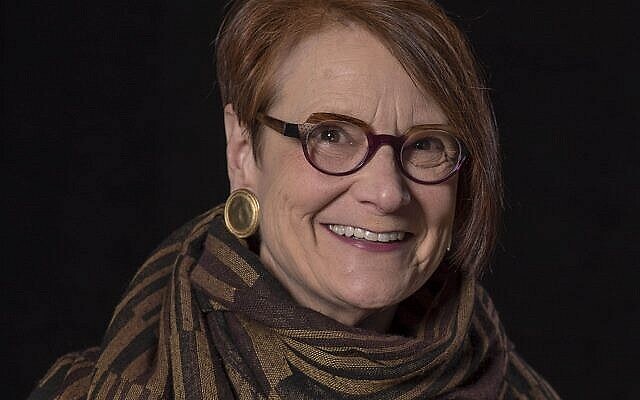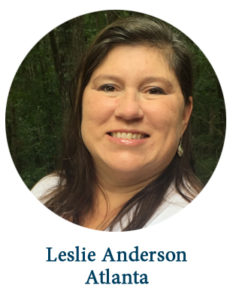Local Jewish Nonprofits Seek Loans to Cover Payroll
The application process for the Paycheck Protection Program has been confusing, report Atlanta nonprofits.

The good news is that Atlanta Jewish nonprofits are eligible to apply for government loans to help them support their payroll during the current economic calamity caused by the coronavirus pandemic. The bad news is that the application process has not been easy.
“The process has been very confusing,” said Leslie Gordon, executive director of the William Breman Jewish Heritage Museum. “The mixed messages coming from the government have not helped. Banks told us it would be live two weeks ago,” she told the AJT in early April. “Then it wasn’t. The rules changed overnight. Submissions seem, in conversation with colleagues, to be all over the map.”
Gordon is referring to the Paycheck Protection Program, which is part of the Coronavirus Aid, Relief and Economic Security (CARES) Act that was signed into law by President Donald Trump March 17. The Act allocated some $350 billion in funding to help keep workers employed amid the pandemic and economic downturn. The initiative provides 100 percent federally guaranteed loans to small businesses and nonprofits.
Despite the challenges, Gordon, like many heads of Jewish nonprofits in Atlanta, persevered in applying for a loan and is guardedly hopeful. Like many of her colleagues, the Breman “applied strictly to keep staff in place.” She noted that although her team is keeping busy with their Holocaust education program and work to combat anti-Semitism, while the archive staff is working remotely, the museum has been negatively impacted by the social isolation policy necessitated by the pandemic.
Already many field trips have been canceled and two exhibition openings at the Breman have been delayed. “We expect that even after the worst is over people will not want to congregate so we are anticipating it will be awhile before we can get back to ‘normal’ visitation,” Gordon reported.
Gordon’s experience applying for a loan wasn’t unique. “The process was simple, but confusing as each day there was new information shared that changed the process and what was protected,” said Gabby Leon Spatt, executive director of The Blue Dove Foundation, an Atlanta-based nonprofit focusing on mental health and substance abuse education, awareness and outreach through a Jewish lens.
Spatt, The Blue Dove’s only full-time employee, said her organization has seen a decline in donations over the past few weeks, “which I’m sure will continue for several months.” But she says that, “as a Jewish nonprofit and an organization connected to the Jewish Federation system, we were lucky to be able to receive guidance and support that was available at www.JewishTogether.org.” She said the support came in the form of several webinar options, sample forms, email assistance and continuous updates.
“On a local level, Leslie Anderson really became a resource, too, as she was constantly sharing updates with the community,” Spatt said.

Anderson, who is the executive director of the Jewish Community Relations Council of Atlanta, explained that she’s been the liaison between the Jewish Federation of Greater Atlanta and The Jewish Federations of North America. “JFNA immediately jumped on and has stayed on top of coordinating” the guidance for Jewish nonprofits. She noted that “quite a few” Atlanta Jewish nonprofits are applying for loans through the CARES Act.
Renee Kutner, senior vice president of marketing and leadership development at the Atlanta Federation, pointed out, though, that “organizations who qualify and are interested in applying for SBA loans through the CARES Act do so on their own. All types of nonprofits within our ecosystem are looking into their options as it relates to CARES.”
She said she doesn’t know how much money “will be applied for from the Atlanta Jewish community. Any organization applying for Small Business Administration loans under the Paycheck Protections Program will follow the guidelines and calculations included in the CARES Act based on their individual organization. The PPP contains specific information as to what the loans could be used toward; it is primarily compensation-related expenses.”
To be more specific, the loans can be used for operational costs including payroll expenses; health benefits; paid, sick, medical/family leave and insurance premiums; mortgage interest; rent payments; and interest on debt incurred before the covered period. In addition, if the organizations meet certain requirements, they may qualify to have a portion of their loan forgiven.
Anderson noted that there’s another potential benefit for Atlanta nonprofits as a result of the CARES Act. “It allows for creating a new charitable tax donation for those who don’t itemize, up to $300,” she explained.

For those who itemize, Kutner said, the CARES Act lifts the limits on charitable contributions from 60 percent of adjusted gross income to 100 percent, and for corporations, increases the limits from 10 percent to 25 percent of taxable income. “Donations to donor-advised-funds would not qualify for the increased deduction, however, we do anticipate that this provision within the act will help to stimulate philanthropic giving.”
The incentive applies to contributions made in 2020 and would be claimed on tax forms next year.
Some drawbacks to the program, however, include the fact that no independent contractor payments can be included in the total payroll costs. Also, the “rehire” full-time equivalent, or hours worked by one employee on a full-time basis, only applies to the Feb. 15 to April 26 period. According to accountants that Anderson is working with on a voluntary basis, in order to maximize the loan forgiveness percentage, employers would need to rehire employees by April 26. She also noted that 75 percent of loan proceeds must be used for payroll cost. The rest would not be subject to forgiveness.
“Federation’s top priority right now is helping our community members and organizations through this crisis,” Kutner said. “The CARES Act is one aspect of this, and we are so glad the bill was written to include nonprofits so that we have this as one avenue to provide much needed assistance.”



comments